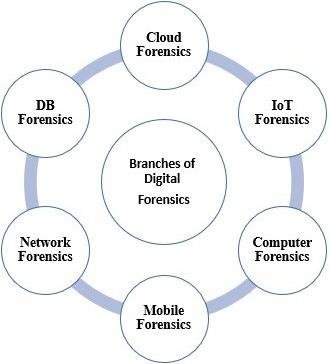Internet Investigations: An Essential Component of Cybersecurity
In an era where digital interactions dominate our daily lives, the rise of cybercrime poses significant threats to individuals, businesses, and society as a whole. Internet investigations have emerged as a critical component in the fight against these threats, employing advanced technical skills and investigative techniques to uncover illegal activities conducted online. From tracking down cybercriminals to ensuring online privacy and supporting law enforcement agencies, the role of internet investigations is multifaceted and vital for maintaining the safety and integrity of our digital environments. As cybercriminals grow more sophisticated, the need for comprehensive internet investigations becomes increasingly essential.

Understanding Internet Investigations
Internet investigations are crucial in addressing the rise of cybercrime and protecting online communities. These investigations leverage advanced technical skills and investigative techniques to uncover illegal activities conducted over the internet.
The Role of Internet Investigations
Tracking Cybercriminals and Digital Offenders
A core objective of internet investigations is identifying and apprehending cybercriminals engaged in hacking, identity theft, online fraud, and cyberbullying. Investigators trace digital footprints, analyze activities, and bring criminals to justice. This requires expertise in digital forensics, network analysis, and data interpretation. For example, identifying a hacker might involve tracking IP addresses, analyzing malware signatures, and collaborating with international cybercrime units.
Conducting Online Fraud Investigations
Internet investigations frequently target complex online fraud schemes. Investigators use data analysis and digital forensics to uncover fraud, identify perpetrators, and collect evidence for legal proceedings. They scrutinize digital transactions and communications across various platforms, from e-commerce sites to social media, ensuring comprehensive coverage. For instance, dismantling a phishing operation could involve tracing the origin of deceptive emails and examining transaction records to follow the money trail.
Ensuring Online Privacy
Protecting online privacy for individuals, businesses, and organizations is a significant aspect of internet investigations. Investigators identify potential privacy risks and resolve reputational damage from cyberattacks. They offer guidance on securing personal and organizational identities online. For example, a privacy breach investigation might involve identifying the source of leaked information, advising on cybersecurity measures, and mitigating the impact of the breach.
Supporting Law Enforcement Agencies
Internet investigations play a crucial role in supporting law enforcement agencies in combating internet-related crimes. Investigators bring expertise in cyber threats, digital evidence handling, and investigative protocols, enhancing the effectiveness of criminal investigations. They assist law enforcement by providing critical insights and technical support. For instance, in a cyberstalking case, internet investigators might analyze online communications and digital evidence to build a robust case for prosecution.
Uncovering Digital Evidence
Gathering and presenting digital evidence is a key function of internet investigations. Investigators extract data from electronic devices, authenticate digital evidence, and analyze electronic records. This evidence is essential in legal proceedings, helping to secure convictions or establish innocence. For instance, analyzing a suspect's computer might reveal incriminating emails or financial transactions linking them to a cybercrime.
Monitoring Online Activities
Internet investigators monitor social media interactions and digital communications to identify and prevent cybercrime. This surveillance uncovers hidden or deleted messages and interactions relevant to investigations, demonstrating that online activities are not entirely private. For example, monitoring a suspect's social media activity could reveal connections to a criminal network or plans for illicit activities.
Skills and Tools for Effective Internet Investigations
Internet investigations require a specialized set of skills and tools to perform duties effectively:
Online Research Techniques:
Efficient use of search engines, databases, and public records.
Data Analysis and Interpretation:
Ability to analyze vast amounts of digital data.
Cybersecurity Knowledge:
Understanding of cybersecurity measures and threats.
Social Media Monitoring:
Utilizing tools to track social media interactions.
Digital Forensics Software:
Use of software to retain and analyze electronic data.

Data Visualization Tools:
Presenting information clearly through visual tools.
Critical Thinking and Problem-Solving:
Essential for uncovering hidden leads.
Legal and Ethical Understanding:
Familiarity with legal and ethical considerations in handling digital evidence.
Techniques for Conducting Internet Investigations
Successful internet investigations require a strategic approach and various techniques:
Gathering Information from Public Sources:
Collecting data from online public sources.
Implementing Advanced Search Techniques:
Refining search queries for relevant results.
Utilizing Digital Forensics Techniques:
Recovering data from electronic devices.
Verifying Collected Data:
Ensuring data accuracy and reliability.
Identifying Anonymity and Fake Identities:
Using IP tracking and digital footprint analysis.
Creating Undercover Identities:
Legally authorized personas to access closed communities.
Challenges Faced in Internet Investigations
Internet investigations face several challenges:
Fake Identities:
Cybercriminals often operate under false identities, complicating traceability.
Technological Advancements:
Keeping up with rapidly evolving technology requires continuous learning.
Misinformation:
Differentiating accurate data from misinformation is challenging.
Legal Boundaries:
Adhering to legal and ethical standards in handling digital evidence is crucial but challenging.
The Future of Internet Investigations
As technology continues to evolve, internet investigations will face new challenges and opportunities. Advances in artificial intelligence, machine learning, and big data analytics will provide investigators with powerful tools to detect and prevent cybercrime more effectively. However, these technological advancements will also be available to cybercriminals, requiring investigators to continuously update their skills and strategies.
Moreover, global collaboration among law enforcement agencies, governments, and private organizations will be essential in combating cybercrime on an international scale. Establishing standardized protocols and sharing best practices can enhance the effectiveness of internet investigations worldwide.
Conclusion
Internet investigations are indispensable in the digital age, requiring a blend of technical expertise, analytical skills, and legal knowledge. By addressing cybercrime, protecting privacy, and supporting law enforcement, internet investigations contribute significantly to online safety and justice.